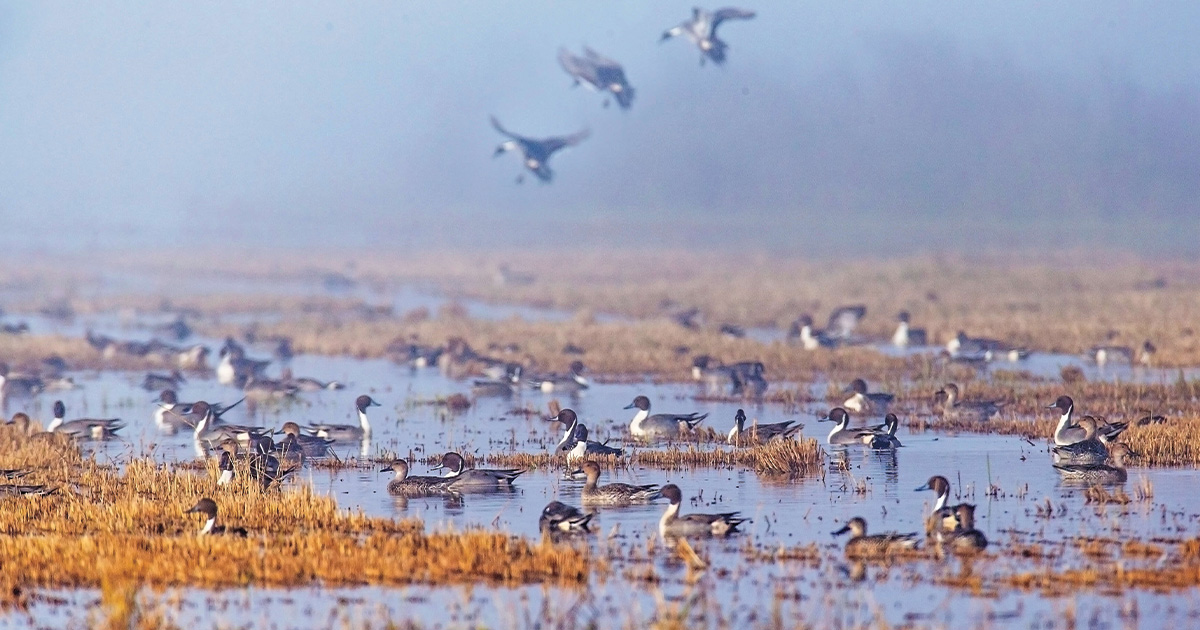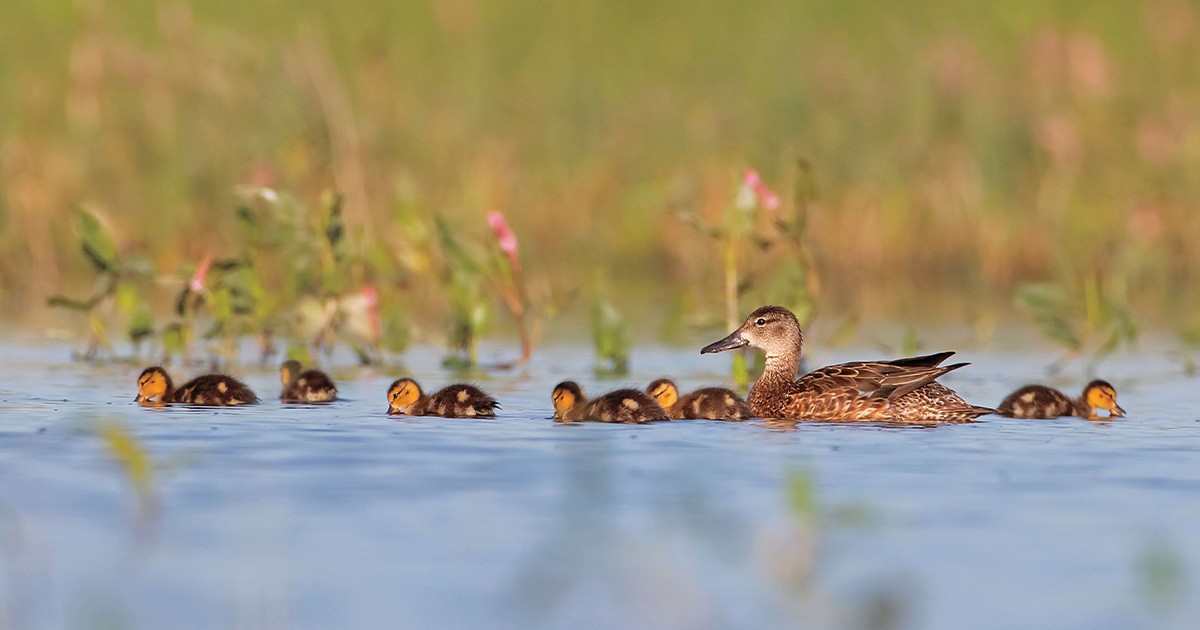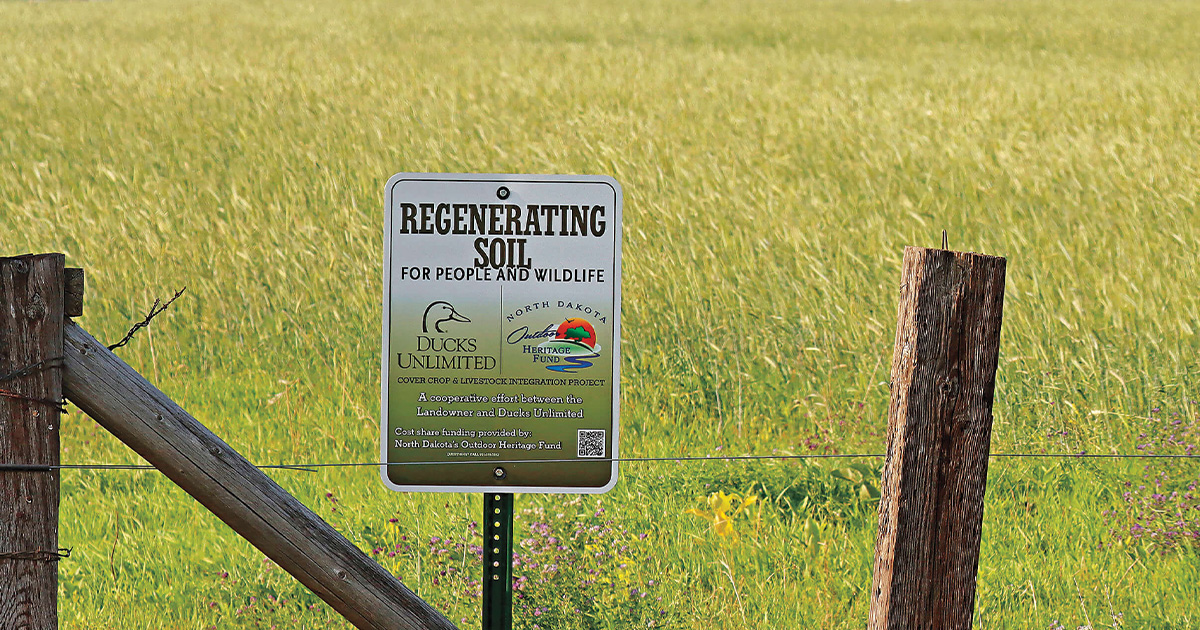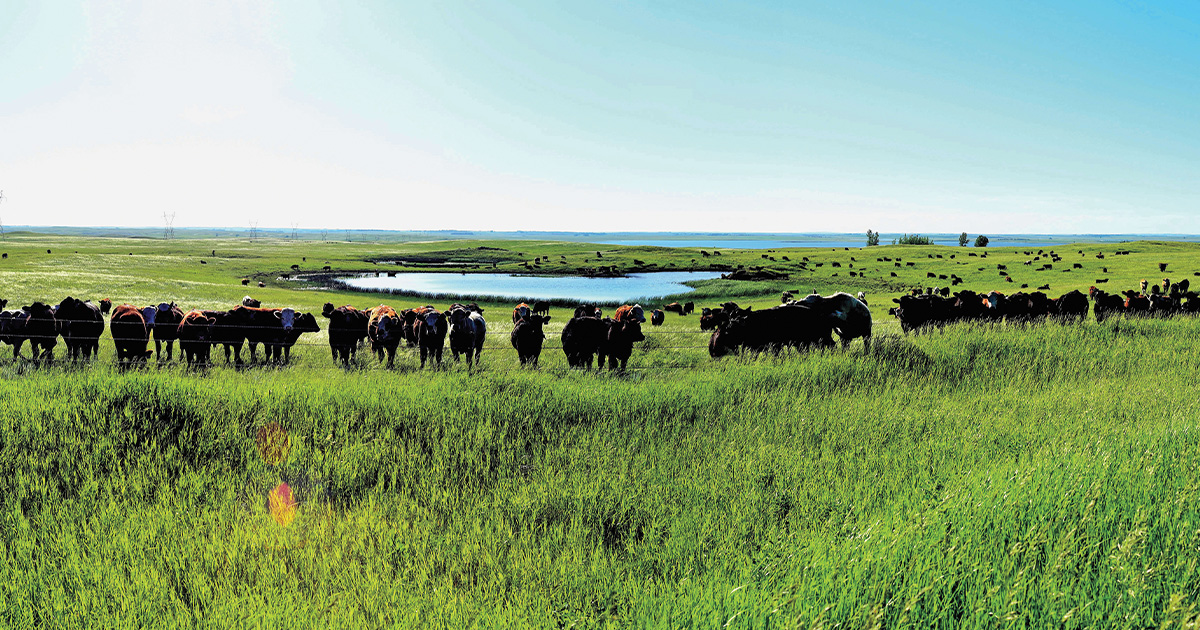Local Solutions, Continental Impact
The Regional Conservation Partnership Program helps DU build stronger relationships with farmers and ranchers at the grassroots level
The Regional Conservation Partnership Program helps DU build stronger relationships with farmers and ranchers at the grassroots level
By Jennifer Boudart

For Ducks Unlimited, working-lands conservation is driven by two objectives: to retain critically important wildlife habitats and to help sustain working farms and ranches on high-priority landscapes. The Regional Conservation Partnership Program (RCPP) has proven to be an excellent vehicle for DU to meet both objectives. Established in the 2014 Farm Bill, RCPP is administered by the USDA's Natural Resources Conservation Service (NRCS), which describes it as a "partner-driven approach to conservation that funds solutions to natural resource challenges on agricultural land."
The NRCS awards funding to projects that the agency identifies as being led by experienced partners who demonstrate the ability to leverage RCPP funding; the capacity to manage projects and evaluate outcomes; and the commitment to meaningfully engage and support farmers and ranchers who wish to adopt innovative conservation methods or technologies that align with their goals.
As a major partner on numerous RCPP projects, DU is well versed in fulfilling these criteria from start to finish. DU field staff meet directly with farmers and ranchers to discuss the various conservation practices offered through RCPP and help producers select options that make the most sense for their operations. DU also helps them apply for enrollment in the program (a process that can be quite technical) and then negotiate contracts with NRCS upon approval. Finally, DU provides financial and technical assistance to help landowners implement conservation practices on the landscape and evaluate their success going forward.

Many RCPP projects have been delivered under the auspices of the USA Rice−Ducks Unlimited Rice Stewardship Partnership, which focuses on conserving working rice lands, water resources, and wetland wildlife across six rice-growing states. To date, the partnership has raised $110 million for projects impacting nearly 830,000 acres. RCPP has been foundational to this success, says Dr. Scott Manley, director of agriculture support in DU's Southern Region. "RCPP has brought together supply chain partners across the rice industry—from the person who grows it to the person who consumes it and everybody in between. It's given us more holistic conservation projects that promote the most effective local solutions."
Manley says the Nutrient Management and Gulf Coast Rice Production Project, which helps rice growers in southwest Louisiana address nutrient deficiencies in coastal soils, is an excellent example of RCPP's impact. Initially funded in 2017, this project was renewed for a second phase in 2019 due to its popularity and success. This partnership will ultimately receive $1.2 million in funding, impact nearly 50,000 acres, and assist 70-plus rice producers with nutrient management. The Mosaic Company, which has provided matching funds and expertise as North America's largest producer of potash and phosphate fertilizer, has played a key role in achieving this success.
Manley says it's encouraging that almost all the producers who participated in the first phase of the project plan to continue their new nutrient management practices and even expand them on the rest of their farms. That benefits DU's mission. "If you want farmers on the Gulf Coast to grow rice, which provides crucial food resources and habitat for waterfowl, you need to help them be very successful at it. That's what this RCPP project does."

Soil health is also the focus of another RCPP project, which is being delivered across the prairies of South Dakota, North Dakota, and Montana. In September 2020, NRCS announced an $8.7 million award to DU for the Scaling Soil Health in the Prairie Pothole Region project. Additional contributions from 20 partners across the three states bumped the total investment up to $17 million. South Dakota is currently in its second year of applications, while North Dakota is in year one and Montana is finalizing NRCS contract negotiations. DU and its partners help farmers and ranchers improve soil health by reducing soil disturbance, diversifying cropping systems, restoring wetlands and grasslands, and developing the infrastructure needed to implement rotational grazing practices. DU Regional Agronomist Brian Chatham has already received positive feedback from participating producers who have seen benefits such as healthier livestock, lower fertilizer costs, and better crop yields. He hopes these positive outcomes will motivate producers to maintain regenerative soil health practices after their contracts end.
This RCPP project is being delivered in areas that have been identified as having the highest density of breeding ducks in the region, Chatham notes. "So, if we can get out here on the landscape through this partnership and conserve habitat in high-priority areas with high densities of breeding pairs, that will mean more ducks, healthier wetlands, less soil erosion, and happy producers whose bottom line is being improved," he explains.
In western Kansas, the Groundwater Recharge and Sustainability Project (GRASP) is ramping up to address municipal water supply issues in Wichita and Greeley Counties that stem from declining water levels in the Ogallala Aquifer. GRASP has received $1.4 million through RCPP along with another $1.5 million from project partners, including DU and the Playa Lakes Joint Venture. Playa wetlands, which provide crucial groundwater recharge for the underlying Ogallala Aquifer, are a major focus of this project. Landowners will receive assistance to voluntarily restore playas and surrounding vegetated buffers near municipal and domestic wells. This will allow water to trickle down through the soil and recharge portions of the aquifer that supply those wells. Reducing agricultural water use is another focus of GRASP. Efforts targeting this goal will include improving irrigation efficiency, reducing pumping, retiring wells, and transitioning to dryland cropping systems.

DU Biologist Abe Lollar says GRASP aligns well with DU's conservation goals in the playa lakes region. "These wetlands and adjacent uplands are the most biodiverse hot spots on the landscape, period," Lollar says. "They provide food, cover, and resting opportunities for waterfowl during fall migration, but even more importantly during spring migration. Studies show 95 percent of playas don't function properly."
Lollar notes that GRASP is helping DU build on existing relationships in these communities. "We had a pretty good start with some landowners who wanted to conserve their playas prior to this program," Lollar recalls. "We got together with community leaders along with a few producers and some of the big employers who provide jobs. Before we even walked out the door, people were saying they wanted to do a RCPP project. I think that's because they recognized that it is locally led, it is locally developed, and it is achieving their local goals."
Lollar sums up the strength of RCPP and its importance to DU's mission nicely: "The flexibility of the program encourages more producers to get enrolled in conservation. It isn't a one-size-fits-all approach. It can be adjusted and tailored to meet local needs so that it makes the most sense for the resource, producers, and other members of their communities."
Ducks Unlimited uses cookies to enhance your browsing experience, optimize site functionality, analyze traffic, and deliver personalized advertising through third parties. By continuing to use this site, you agree to our use of cookies. View Privacy Policy